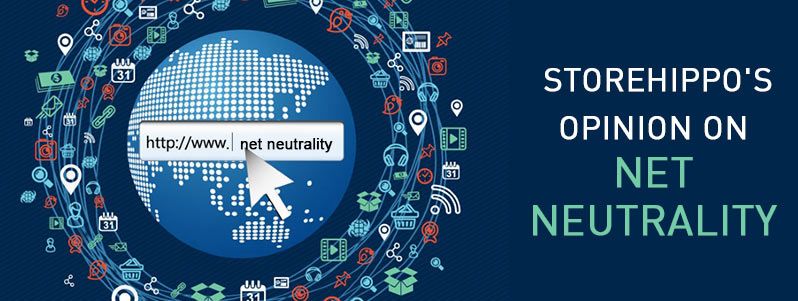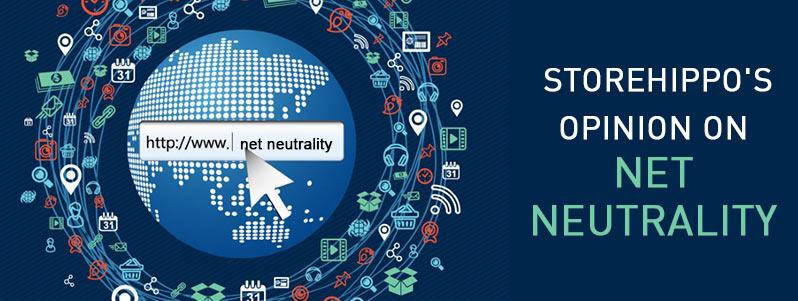Net neutrality is the principle that all legal internet content should be equally accessible to consumers and that Internet Service Providers (ISPs) should not favour, block or slow down access to any of it. It means that ISPs must provide access to all content and applications regardless of the source, and without favouring or blocking particular products or websites. The net neutrality principle mandates that all data be treated equally on networks.
Why the spark in debate?
The issue of Net neutrality has emerged in India as a TRAI consultation paper has sought public comments (until April 24, 2015) on the regulation of OTT (over-the top operators ) services, particularly messaging and VoIP services like WhatsApp, Viber and Skype that compete with services provided by Telco’s. TRAI has sought answers on whether there is a need to further tighten the regulatory environment on online players, especially as they are increasingly reaching out to millions of subscribers across the country. There are more than 300 million internet users in India and these are growing at a rapid pace with increased penetration of cost effective Smartphones and better technologies.
Though consumers appear to be majorly in favour of net neutrality, the telecom operators feel that they will become unprofitable due to OTT services that are offered through their network, like Skype and WhatsApp which lowers the SMS revenues. At the same time it is argued that the Telco’s have provided no evidence to show that losses from SMS revenues are big enough to make them unprofitable. Also, they don't account for the rapidly increasing revenue for data usage by customers.
Internet and Mobile Association of India (IAMAI), the industry body representing social media and other online companies, has argued that social media and other internet companies are driving the surge in data usage in the market and thus there is no case for them to pay any charges to Telco’s like Airtel, Vodafone and Idea Cellular. IAMAI feels that companies providing communication services are already under the purview of the IT Act and adding more regulations would be counter-productive to innovation and act as a deterrent to the burgeoning start-up culture. Companies like Google, Facebook, Flipkart, etc have come out strongly against arguments that the internet companies should pay a charge to telecom providers for using their infrastructure to reach subscribers.
Airtel Zero
Airtel's recently launched (controversial) plan, Airtel Zero, promised preferential treatment to websites, but for a fee. It promised free consumer browsing and special promotional campaigns for companies which subscribed to the plan, a move seen as grossly violating net neutrality, which envisages that all data and websites should be treated and charged equally. On the other hand, Airtel argues that their company also fully supports the concept of net neutrality but there are some misconceptions about their toll free data platform- Airtel Zero.
Boost for Net Neutrality
Flipkart’s had initially defended the decision to join the Airtel plan but this decision was met with a lot of criticism. Flipkart took note of the heated debate over net neutrality before pulling the plug on the Airtel plan. “We at Flipkart have always strongly believed in the concept of net neutrality, for we exist because of the internet,” the Bangalore headquartered company said. Many industry organizations, startups, and venture capitalists said there is nothing open about this arrangement and goes against innovation as the system unfairly gives preference to one firm over others. They feel that telecom players are national utilities and not marketing platforms.
Flipkart's pullout comes at a time when the government has thrown visible hints about its support to net neutrality even as telecom regulator TRAI is looking into the issue of creating a regulatory framework for over-the top operators. Over 3 lakh emails have already been sent to TRAI in favour of maintaining net neutrality in India.
Why should you bother?
Net neutrality is a must today. If there is no net neutrality, the Internet will cease to function the way it has all this while. It means ISPs will be able to charge companies like YouTube or Netflix as they consume more bandwidth, and eventually the load of the extra sum will be pushed to the consumers. ISPs can then create slow as well as fast Internet lanes, which will mean all websites cannot be accessed at the same speed and one can do so only on paying an additional sum. For instance, currently, you have a standard data package and access all the content at the same speed, whether it is an international or Indian website. Similarly, ISPs can also charge extra for the free calls you make using services like WhatsApp, Skype and others, and eventually the load of additional payable sum by the OTT players will be pushed onto consumers.
StoreHippo’s take on the issue
Preferential pricing goes against innovation and spells doom for startups. If we do not consider net neutrality, the door will shut on the entrepreneurial aspirations. Net neutrality is essential for a free and competitive market.
https://www.storehippo.com/
9th Floor, Spaze iTech Park, A1-Tower, Sector-49 Sohna Road, Gurgaon, Haryana 122018, CIN - U72200HR2015PTC054459
122001
Gurgaon
IN
StoreHippo
https://www.storehippo.com/
9th Floor, Spaze iTech Park, A1-Tower, Sector-49 Sohna Road, Gurgaon, Haryana 122018, CIN - U72200HR2015PTC054459
Gurgaon,
IN
+918010117117
https://www.storehippo.com/s/5667e7d63086b2e718049ad9/ms.settings/521c4d7548c284890e000001/594a155440e9fb9e592f2ba9-480x480.png"
[email protected]
https://www.storehippo.com/en/blog/what-is-net-neutrality
What is Net Neutrality?
2016-03-02T06:33:56.029Z
2017-02-05T21:16:26.970Z


StoreHippo
Information
Explore
Features
© copyright 2020 StoreHippo.com . All Rights Reserved.






















Leave A Comment